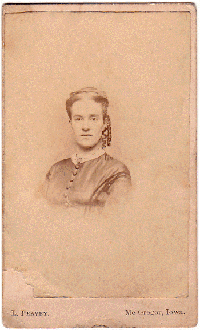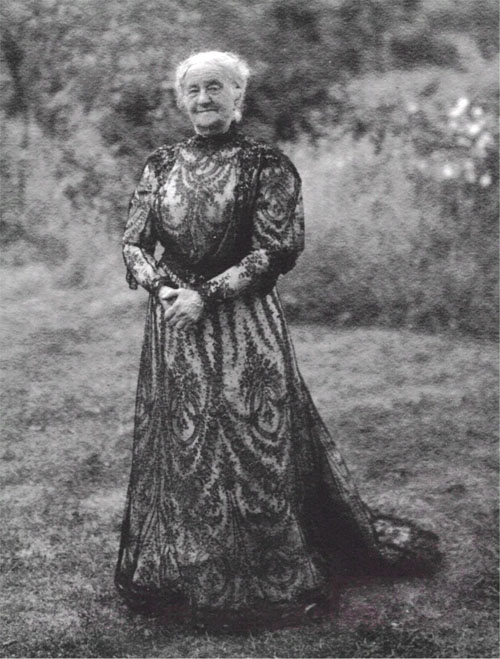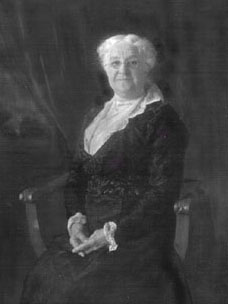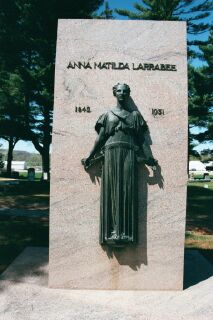Anna Matilda Appelman was born in Ledyard, CT on August 13, 1842, the eldest of 8 children.
She spent her early childhood on a family farm that had been a "grant of the Crown" to the Williams family. Her family tree stretches back to Pilgrims John Alden and Priscilla Mullins of the Mayflower and the Plymouth Colony.
Her father Gustavus Adolphus Appelman was a whaling captain and her mother was Prudence Ann Williams Appelman.

|
| Her family moved to Iowa when she was 12 - they lived in the Garnavillo and Grand Meadow areas. She went to school for 3 months each winter. Other schooling she received from her parents. When she was 15, Miss Appelman returned to the east and finished her schooling at Mystic Academy in Mystic, Connecticut. She then returned to Iowa where she attended evening singing classes. It was there that she met her future husband - William Larrabee - who was conductor of the singing classes. She taught school for 2 years to save enough money for her wedding dress.
|
Photo image donated by Kevin Renaldo
Photographer: L. Peavey of McGregor, IA
|
|
|
"She was almost as well known in the state as her husband, for her ability to meet all demands, to grasp large affairs, to share in her husband's responsibilities, and withal, to make an attractive, wholesome home." (A quote from the book "Progressive Men of Iowa").
She married William Larrabee on September 12, 1861 and lived for awhile in a white stone building near the Clermont mill. The couple moved into Montauk upon its completion in 1874.
(Anecdote: Governor Larrabee had 100,000 trees planted around Montauk - most were white pines. Once, while the Governor was away, Anna ordered a wide swath of those trees removed so she could see down the valley. When he came home, he was shocked and said, "Mrs Larrabee, do you know how long it took those trees to grow?" She responded, "Mr Larrabee, it took only a few days to remove them." (Note 2)
|
| 
|

|
| Mrs. Larrabee was for 30 years the superintendent of the Union Sunday school in Clermont to which the family gave a pipe organ.
She was a strict Prohibitionist and active with the Woman's Christian Temperance Union. She identified herself as Protestant and Republican. She was also a member of the Daughters of the American Revolution, Delta Gamma, and the Red Cross. She objected to woman's suffrage and refused to vote after the passage of the 19th Ammendment in 1920. Post WWI, she was very active in the support of French war orphans. (1)
She raised her children for a role in an elite social class. From 1895 to 1903, she employed a French woman, Mathilde Laigle, to school the children in the cultured manners and refined graces of high society ladies and gentlemen. She held regular French language sessions with the 4 daughters often planning entire days when only French was spoken. (The Larrabee's send her $5,000 in 1905 as a token of appreciation.) (1)
|



